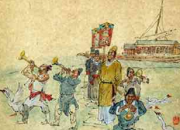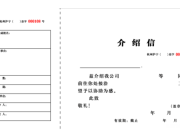愚人节英语作文【中英对照】
时间:2021-08-31 摘要:愚人节的英语是April Fools’ Day,也叫做All Fools’ Day。有些人相信愚人节是为了庆祝季节变更,有些人则相信这是因为年历的变更才形成的节日。
April Fool's Day is traditionally a day to play practical jokes on others, send people on fool's errands, and fool the unsuspecting. No one knows how this holiday began but it was thought to have originated in France.
传统上来讲,愚人节这一天,人们可以相互搞恶作剧,骗人跑腿,欺骗不知情的人。没人知道这个节日是怎么来的,但人们普遍认为它源自法国。
The closest point in time that can be identified as the beginning of this tradition was in 1582, in France. New Year's was celebrated on March 25 and celebrations lasted until April 1st. When New Year's Day as changed from March 25 to January 1st in the mid-1560's by King Charles IX, there were some people who still celebrated it on April 1st and those people were called April Fools.
庆祝愚人节最早是在1582年,在法国。那时,当时法国新年是在3月25日,一直持续到4月1日。16世纪60年代中期,国王查理九世把新年从3月25日变为1月1日,而还有一些人在4月1日过新年,这些人就被称作四月傻瓜了。
Pranks performed on April Fool's Day range from the simple, (such as saying, "Your shoe's untied!), to the elaborate. Setting a roommate's alarm clock back an hour is a common gag. The news media even gets involved. For instance, a British short film once shown on April Fool's Day was a fairly detailed documentary about "spaghetti farmers" and how they harvest their crop from the spaghetti trees. Whatever the prank, the trickster usually ends it by yelling to his victim, "April Fool!"
愚人节那天的恶作剧有的很简单(比如,说句“你鞋带开了!”),有的却是精心设计的。把室友的闹钟往后调一小时是常见的。甚至新闻媒体都来凑热闹。比如,在愚人节那天,曾经有一部英国短片较为详细地记录了“种意大利面的农民”,以及他们如何从意大利面树上收获意大利面。不管是什么恶作剧,搞恶作剧的人通常在最后会对被搞的人喊一句:"四月傻瓜!"











